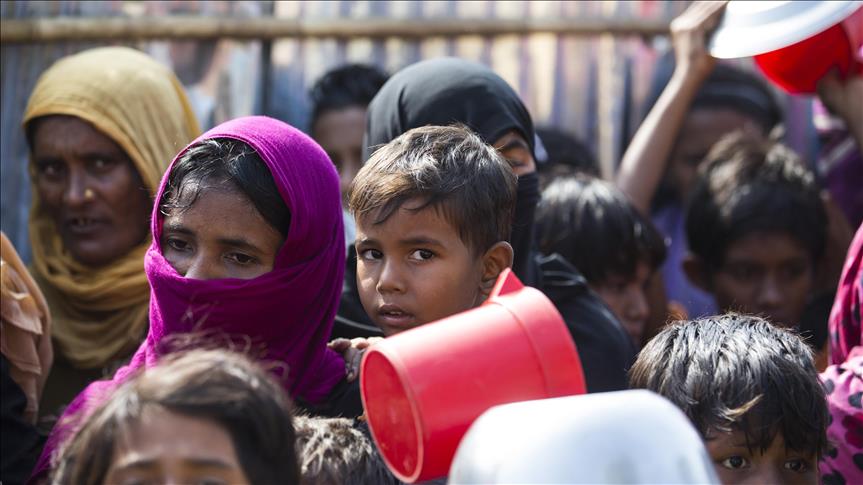Rohingya refugees in Bangladesh exceed 680,000: WHO
World Health Organization says health needs of Rohingya refugees 'continue to be immense'
 Rohingya people wait in line to receive food aid at Kutupalong refugee camp in Maynar Guna, near Cox's Bazar, Bangladesh in December, 2017
(Mustafa Kamacı-Anadolu Agency )
Rohingya people wait in line to receive food aid at Kutupalong refugee camp in Maynar Guna, near Cox's Bazar, Bangladesh in December, 2017
(Mustafa Kamacı-Anadolu Agency )
Ankara
By Burcu Arik
ISTANBUL
The World Health Organization on Tuesday said an estimated 688,000 Rohingyas refugees had crossed over into Bangladesh from Myanmar since Aug. 25, 2017, joining over 200,000 people who had arrived earlier.
In a written statement issued on Tuesday, the WHO said the camps -- which it called the world’s biggest refugee settlement areas -- were risking disease outbreaks.
Urging further efforts in health services for nearly 1.3 million people in Cox’s Bazar -- Rohingyas and their surrounding host communities -- the WHO said health needs continued to be immense.
According to the regional director for WHO South-East Asia, Poonam Khetrapal Singh, cited in the statement, major efforts had been made by the Bangladeshi government and partner agencies to prevent the spread of diseases such as cholera and to rapidly control outbreaks of measles and diphtheria.
"However, the challenges are huge, multiple and evolving. The magnitude of the crisis requires continued efforts and generous contributions by all partners to scale up health services for the vulnerable population," she said.
The regional director said "water and sanitation, and shelter continue to be far from optimum, increasing the risk of rapid spread of several communicable and water borne diseases."
The Rohingya, described by the UN as the world's most persecuted people, have faced heightened fears of attack since dozens were killed in communal violence in 2012.
At least 9,000 Rohingya were killed in Rakhine state from Aug. 25 to Sept. 24, according to Doctors Without Borders.
The UN has documented mass gang rapes, killings -- including of infants and young children -- brutal beatings and disappearances committed by security personnel. In a report, UN investigators said such violations may have constituted crimes against humanity.
Anadolu Agency website contains only a portion of the news stories offered to subscribers in the AA News Broadcasting System (HAS), and in summarized form. Please contact us for subscription options.


